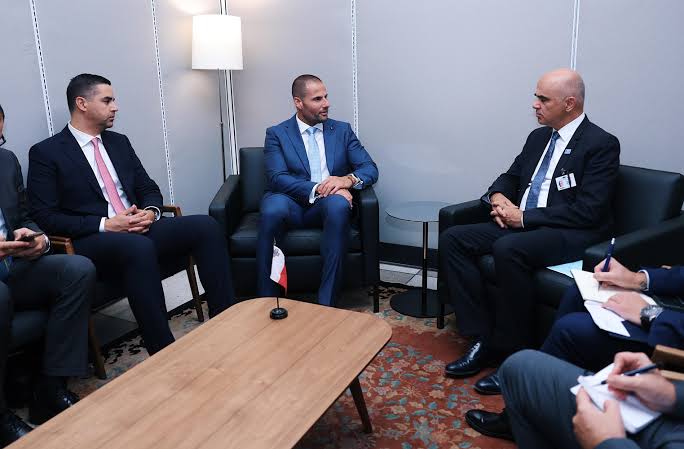Europe’s leading human rights body has criticised nine governments that have urged a rethink of the interpretation of the European convention on human rights on migration issues.
The Council of Europe secretary general, Alain Berset, spoke out against “politicising” the European court of human rights after nine European leaders signed a letter organised by Italy’s Giorgia Meloni and Denmark’s Mette Frederiksen, calling for an “open-minded conversation” about the interpretation of the convention.
The nine signatories, who also included the leaders of Austria, Belgium, the Czech Republic, Estonia, Latvia, Lithuania and Poland, said governments needed more room to decide on when to expel foreign criminals and keep track of them when they cannot be deported, as well as to counter foreign states seeking to destabilise countries by sending migrants to their borders. “What was once right might not be the answer of tomorrow,” the letter states.
Speaking alongside Frederiksen in Rome last week, Meloni said the main problem was that countries could not expel “immigrant citizens who had committed serious crimes”.
In a response on Saturday, Berset, a former Swiss government minister, challenged the governments that had questioned the convention’s application. “Debate is healthy but politicising the court is not,” he wrote in a statement. “In a society governed by the rule of law, no judiciary should face political pressure. Institutions that protect fundamental rights cannot bend to political cycles. If they do, we risk eroding the very stability they were built to ensure.”
He said the European court of human rights was the only international court adjudicating violations of human rights in the Russian war of aggression against Ukraine. “This should never be undermined,” he said.
The Council of Europe, which was formed in 1949 in the period of postwar reconciliation, and which is separate to the EU, has 46 member countries that have signed the European convention on human rights. The European court of human rights, based in Strasbourg, determines whether governments are living up to their obligations under the convention.
The court has ruled against Italy in a handful of migration cases, including a 2016 case where Tunisians fleeing their country in the wake of the Arab spring were held at a detention centre on Lampedusa before being removed to their home country.
The court has ruled against Denmark over the issue of family reunification, such as in a 2021 case where Danish authorities were found to have denied a Syrian refugee his right to a family life by refusing his wife permission to join him.
More than 30 cases are pending at the court against Latvia, Lithuania and Poland after allegations of pushbacks into Belarus to prevent people from claiming asylum in these countries. For instance, the court is hearing from 26 Iraqi nationals of Kurdish origin who allege that Latvian authorities forced them back into Belarus without hearing their asylum claims. The people, who have nearly all been sent back to Iraq, also say they were denied access to food, shelter or water while stranded in the forest on the Latvian-Belarusian border.
The Baltic states and Poland accuse Belarus of weaponising migrants by luring people from the Middle East and Africa to the border region in an attempt to destabilise the EU. They say they are facing “hybrid warfare” and that stability of their societies needs greater priority
-Advertisement-
Grab our latest Magazine, "Ayodele Akintunde, SAN: Legal Titan Celebrates and Reflects on His Life Journey.". Get your order fast and stress free.
For more details about Newswire Law&Events Magazine, kindly reach out to us on 08039218044, 09070309355. Email: newswiremagazine@yahoo.co.uk. You will be glad you did







